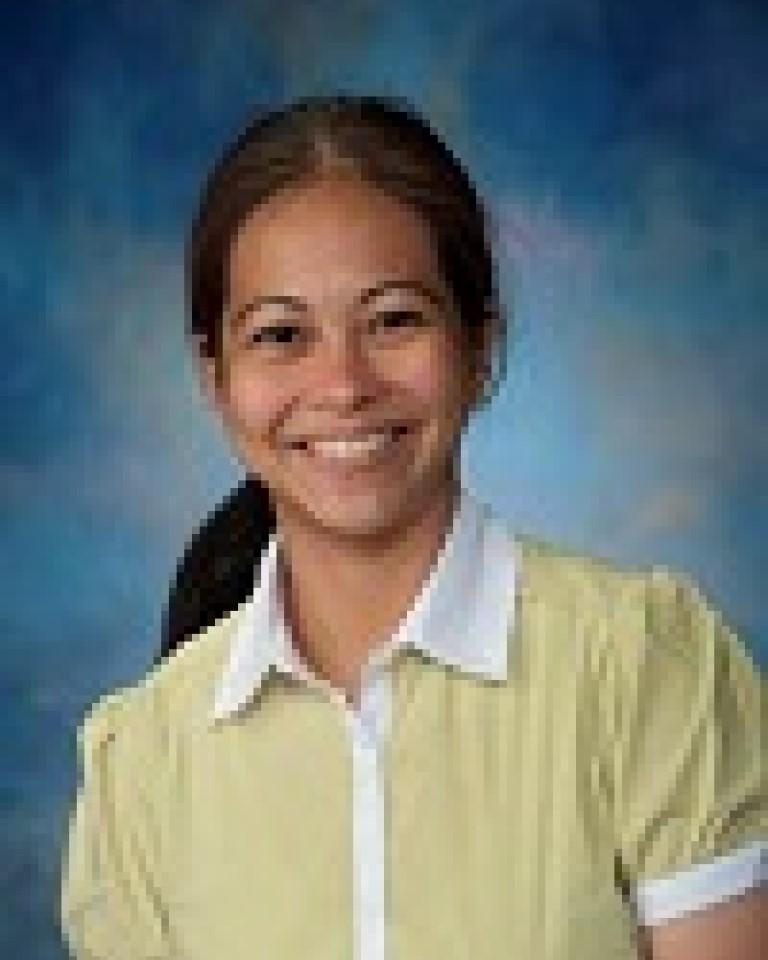Remealle How

ALUMNI SPOTLIGHT | MARCH 2014
KU major: Microbiology, Class of 2005
Current occupation: Physician
Research mentor while at KU: Susan Egan
Describe the undergraduate research experience that you had while at KU: I worked in Dr. Egan's lab, which is a microbiology lab that focused on gene expression in bacteria. I was under Dr. Egan's mentorship as well as her PhD students. I performed experiments for my own projects that answered a specific scientific question, but at the same time, this project was a branch of a broader research question/hypothesis of the PhD student with whom I worked closely and supervised me.
Q: What do you think was the most important thing you learned while doing undergraduate research?
A: How to ask the right questions to initiate a scientific endeavor, how to implement these ideas, how to write a research paper, and how to communicate your scientific questions and findings in a research presentation.
Q: What advice do you have for undergraduates who might be interested in doing research?
A: Pick your main research mentor early and really put in the time and effort to work in the lab. Be enthusiastic, ask questions, get involved in the research so you learn not only technical skills but also analytical skills that are key to scientific research.
Q: Do you use any of the skills or perspectives gained doing research in your current occupation? How so?
A: In med school at Johns Hopkins and now as a surgical resident physician in University of Pittsburgh Medical Center, I have used the analytical skills that I learned during research to help in diagnosing and providing the appropriate treatment plan to patients. I have finished 3 years of clinical training in general surgery and I am currently in the second year of our training program's 2-year mandatory research period. I work in the basic science laboratory of Dr. David Geller, a hepatobiliary surgeon who studies liver ischemia/reperfusion injury. I use these skills on a daily basis when I pursue a new experiment to ask a specific scientific question or test a hypothesis that I have formulated from previous research projects in the laboratory or from papers that I have read that are relevant to my current research. We also have research quarterly presentations to the Chair of our Surgery Department to report our progress and I have been to a few national scientific meetings to present my research. The presentation skills that I learned during my undergraduate research experience have been key in helping me with preparing and giving these presentations.
Q: Many undergraduate researchers are making decisions about what to do after they graduate from KU. Having been in those shoes, what do you know now that you wish you’d known then? Do you have any advice?
A: I wish I knew then that despite being "just a state school," the University of Kansas has numerous highly qualified professors who are truly experts in their field, highly accomplished in research, and committed to mentoring students. Every professor I approached was very open and amiable and willing to give advice, support, and guidance. I didn't know how well-prepared I was from a research and education standpoint until I went to medical school and surgical residency and had no problems with the basic science subjects in med school, the research experiments and projects I pursued in med school and residency,and the research abstracts and presentations that I have to write and present now as a surgical resident. Compared to my peers, I felt better prepared and better qualified in these areas, and I didn't know that when I was at KU. I tended to be shy, so I did not approach or ask for advice from as many professors as I perhaps should have. So my advice is to take advantage of those professors and ask questions, ask for mentorship from as many professors that you like and respect, and have them read papers or critique your presentations; all the knowledge they can give you will help you down the road with whatever career you choose, and especially if you choose to pursue a career in academic medicine.